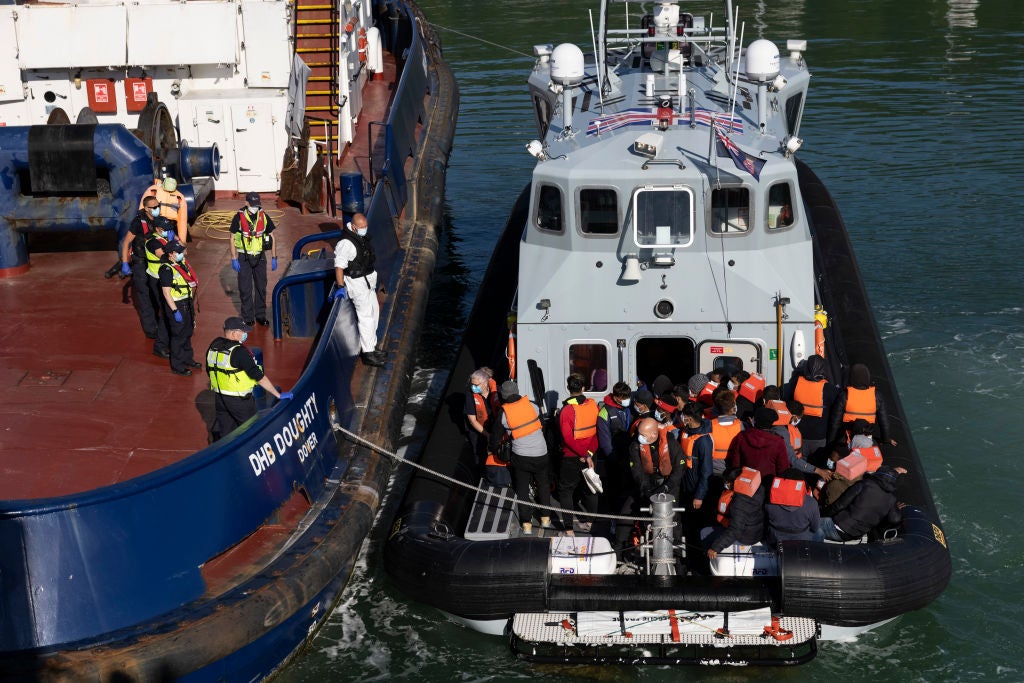Priti Patel still isn’t dealing with the root causes of Channel crossings
Giving the French millions to stop the unstoppable is futile. Market forces will always be more powerful than any border force, and passing legislation in Westminster does not abrogate international obligations


Your support helps us to tell the story
From reproductive rights to climate change to Big Tech, The Independent is on the ground when the story is developing. Whether it's investigating the financials of Elon Musk's pro-Trump PAC or producing our latest documentary, 'The A Word', which shines a light on the American women fighting for reproductive rights, we know how important it is to parse out the facts from the messaging.
At such a critical moment in US history, we need reporters on the ground. Your donation allows us to keep sending journalists to speak to both sides of the story.
The Independent is trusted by Americans across the entire political spectrum. And unlike many other quality news outlets, we choose not to lock Americans out of our reporting and analysis with paywalls. We believe quality journalism should be available to everyone, paid for by those who can afford it.
Your support makes all the difference.Right. So we’ve got Brexit done. We’ve left the European Union. We’ve taken back control, as the famous slogan went, of our borders. We’ve implemented a points-based Australian-style brightest and the best immigration regime. So we’ve sorted the migration issue, right?
Seems not. The dinghies are still coming. There are still plenty of people literally dying to get into Britain. Some are refugees and asylum seekers, some are economic migrants and others are somewhere between, trying to escape hopeless poverty-stricken existences in, or close to, war zones – but not actually victims of torture, say.
Mostly they’re younger men, as migrants traditionally tend to be, but there are women and children. Numbers in the lowish thousands are coming across in dinghies, causing something of a sensation, though the volumes are actually quite modest and manageable. Others are, less dramatically, overstaying visas or making it in the back of vans.
Obviously, Brexit didn’t actually change very much. Indeed, the ending of the EU Dublin agreement and wider cooperation means that Britain has less control over its borders, in effect, than it had before. You may have seen the headlines about this: “MIGRANT CRISIS: PATEL PAYS FRENCH £55m TO DO THEIR JOB”.
Actually, the job of any border force is to stop people from getting into their territory, rather than stopping them from getting out. That’s what the French do. If we want them to do something else (at the same time as destroying their fishing industry) then they’ll want payment. What is actually happening is that Priti Patel is paying the French authorities £1m a week to do the job of her own UK Border Force.
Anyway, whoever tries to do it, it is doomed. The British cannot stop the flow of migration any more than they can stop the tide. Priti Patel is no more than a modern-day Queen Cnut. She’ll have no success. The English Channel is too narrow, the volume of traffic too great, and the movements of people in and out of Britain too large to effectively prevent “illegal” migration.
Besides, the UK is obliged to accept and process those genuinely claiming asylum, give them shelter and permit them to stay under the 1951 Convention, and obey the rulings of the European Court of Human Rights (which is nothing to do with the EU). The law of the sea equally obliges the UK to rescue those at risk of drowning. Passing legislation in Westminster does not abrogate those international obligations.
The reason why there are so many migrants risking their lives to get to Britain – the “push” factors are as strong as ever. There are still wars and terrorists across great swathes of the world, and people fleeing for their lives. The “pull” factors are also strong. The UK remains an attractive destination for the more purely economic migrants because there is a demand for their labour, recently boosted at least in the short term by the distortions of the Covid crisis.
Ironically, the ending of free movement of workers from the EU has reduced the supply of labour from that source, thus pushing up wages and attracting more economic migration. Britain simply doesn’t have the people it needs to do all the work that needs doing – skilled, semi-skilled and unskilled. We need cleaners, fruit pickers and taxi drivers, the same as we need premier league footballers, heart surgeons and car industry executives. Market forces will always be more powerful than any border force.
Spending millions on trying to stop the unstoppable is futile. Even the kind of hard-line tactics used by the Australian navy to physically push boats back across maritime borders would be useless. Given that we don’t seem to be able to stop armed conflict in Africa and the Middle East, or reform their economies or eradicate the likes of ISIS, these problems will persist.
At the moment the migrants who turn up in Britain, whatever their status, are prevented from doing any paid work. That’s madness. We’ve got 80,000 vacancies in the NHS alone, apparently. I’ve got a better idea: Why don’t we stop sending the French £1m a week and spend it on employing migrants to help Britain build back better? I think I’d like to hire a big red bus, slap that on the side and take it around the country. Except, of course, there’s a shortage of qualified drivers.
Join our commenting forum
Join thought-provoking conversations, follow other Independent readers and see their replies
Comments